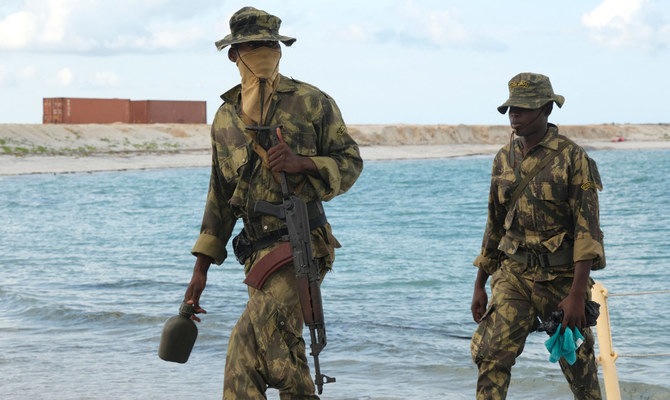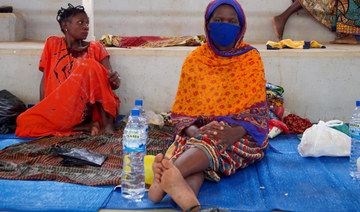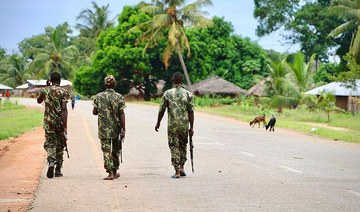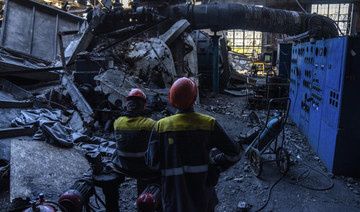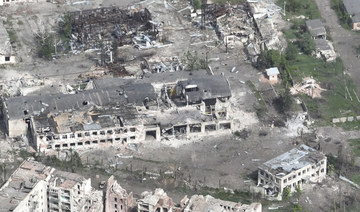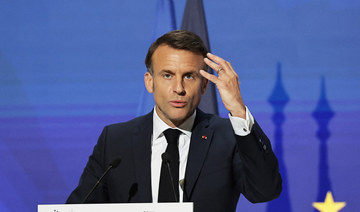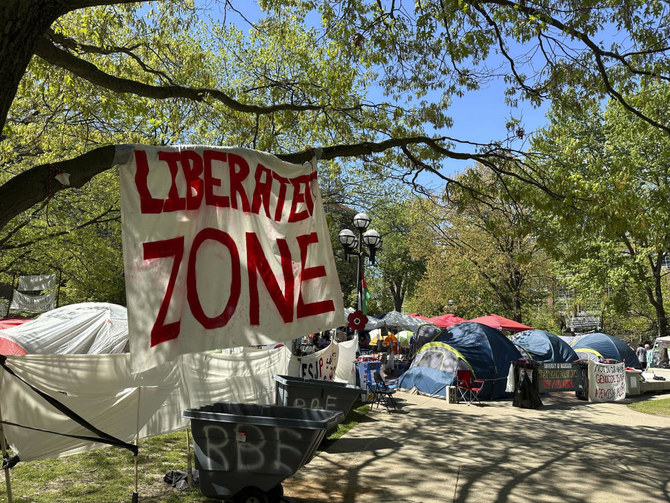QUIONGA, Mozambique: A column of brand-new armored vehicles is parked outside what remains of a government building in Quionga, a village in Mozambique’s restive northern province of Cabo Delgado.
Kalashnikovs on their shoulders, Mozambican soldiers stare at the convoy — an unusual sight in this northern settlement, which just a year ago was controlled by insurgents who have wreaked havoc across the region.
Senior Rwandan officers were visiting on Monday.
They arrived to oversee a joint military operation with their more poorly equipped local counterparts, a show of force to impress residents and the journalists accompanying them.
“We can say to a large extent that the insurgents have been defeated,” says Rwanda Defense Force spokesman, Gen. Ronald Rwivanga.
But the display of confidence belies a still precarious security situation in the region. Only last week, the UN warned that the conflict had not subsided.
It has been five years since terrorists affiliated to Daesh launched an insurgency that monitoring groups say has killed more than 4,000 people.
Forces from Rwanda and other African countries, deployed in July 2021 after years of jihadist attacks, have helped Mozambique retake control of much of the province.
The militants had raided Quionga last year, burning down the local government office and setting up shop in the village.
They were using it as a base to carry out attacks on both sides of the nearby Tanzanian border.
Rwandan forces eventually ousted them in August 2021.
A year on, calm has returned to the area, and so have most of Quionga’s inhabitants.
Outside a field hospital for civilians, Rwandan and Mozambican generals pat each other on the shoulder.
Rwandan troops have secured the key districts of Palma and Mocimboa da Praia, formerly terrorist strongholds.
“The only incidents recorded are now isolated attacks involving very few individuals,” says Gen. Rwivanga.
“The insurgents no longer have major bases.”
Yet only last week, conflict tracker ACLED recorded a string of attacks, including the beheading of a farmer, and clashes between the militants and security forces.
Known locally as Al-Shabab, analysts say the terrorist group has splintered into smaller cells and started to stage incursions further south.
“The conflict has now spilled into the neighboring province of Nampula, which witnessed four attacks by armed groups in September affecting at least 47,000 people and displacing 12,000,” the UN said in a statement last week.
Since 2017, almost a million people have been forced to flee their homes because of the fighting, it added.
The government is hoping energy giants will resume work on gas projects in the region, where the largest deposits south of the Sahara were found in 2010.
TotalEnergies halted a $20 billion project last year, after a deadly raid on the coastal town of Palma.
The French oil giant’s base is a heavily protected enclave built on the sandy coast of the Afungi peninsula.
Its powerful neon lights shine through the night, creating a halo that can be seen for miles.
Some excavators are still at work near the shore, where building barges lie waiting to be shipped offshore where the gas extraction is to take place.
Inside the compound, the large dormitories and a high-end gym stand empty.
Mozambican and Rwandan soldiers guarding the facilities, as well as the few employees who remain on site, are instructed not to give interviews.
Rumors at the camp hold that operations could soon resume.
But last month TotalEnergies said that would not happen until “security and safety conditions have been permanently restored in the region.”
The terrorist leaders are yet to be apprehended and the group’s inner working remain a mystery.
“We do not understand how they work and how they manage to entice the population, there is a lack of intelligence,” said Mirko Manzoni, the UN’s special envoy to Mozambique.
Mozambique’s security forces are ill-trained and equipped compared to their Rwandan colleagues — and they are little trusted by locals.
Outside some villages, makeshift checkpoints made of wooden poles are guarded with old rifles. Some soldiers wait for passing vehicles sitting under the vegetation.
“Who are they going to arrest with this? It’s only to tax local people,” said one Rwandan officer on condition of anonymity.
Mozambican forces are responsible for about 20 percent of the incidents reported in the area, according to ACLED.
As AFP visited the village of Mute, residents gathered to discuss the funeral of an old man beaten to death by a soldier.
The EU is training Mozambican troops and Rwanda has also pledged assistance to smoothen a future handover to local forces.
But asked when that might happen, general Rwivanga is evasive.
“I don’t think I can give a timeline, it’s a long process,” he said.



